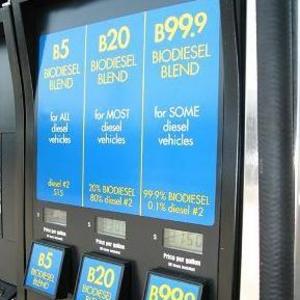SeQuential-Pacific lands Husky Stadium, zoo as new UCO customers

Photo: SeQuential-Pacific Biodiesel
November 5, 2013
BY SeQuential-Pacific Biodiesel
SeQuential-Pacific Biodiesel, the longest-running commercial biodiesel producer in the Pacific Northwest, continues to gain momentum in the Seattle market, adding Woodland Park Zoo and Husky Stadium as cooking oil recycling customers in the second half of 2013.
SeQuential-Pacific is also pleased to be included in Washington’s annual Green 50 list for the second consecutive year. The list honors companies that make significant environmental contributions in the state of Washington.
Advertisement
“We are thrilled to be working with Woodland Park Zoo and University of Washington’s Husky Stadium to make better use of their used cooking oil (UCO),” said Tyson Keever, general manager at SeQuential-Pacific Biodiesel. “We’ve worked hard to build a network of partners throughout the Pacific Northwest that truly value our planet. Our growing customer base in Washington demonstrates the environmental commitment businesses across the state of Washington continue to exemplify of meaningful and economically responsible environmental stewardship.”
With offices throughout the Pacific Northwest, SeQuential-Pacific Biodiesel makes biodiesel—a cleaner burning alternative to petroleum diesel fuel—from used cooking oil recycled from thousands of local restaurant, businesses, hospitals and schools. Biodiesel is significantly cleaner than petroleum diesel, emitting up to 78 percent less carbon dioxide and other harmful gases. SeQuential-Pacific’s fuel is also sold to local retailers throughout the region. This model creates a “closed loop” in which SeQuential-Pacific sources, produces and sells its fuel all in the same region.
Advertisement
Woodland Park Zoo and Husky Stadium join a growing line-up of Seattle area businesses recycling their cooking oil with SeQuential-Pacific Biodiesel. Together, these organizations have partnered to create significant carbon savings. In 2012, SeQuential-Pacific recycled enough oil from Washington businesses to offset more than 10 million pounds of carbon. It would require replacing more than 12,000 incandescent light bulbs with energy efficient compact fluorescents, or planting 3,400 trees to have the same impact.
Founded in 2005, SeQuential-Pacific Biodiesel is a joint venture between SeQuential Biofuels of Oregon and Pacific Biodiesel of Hawaii. As the longest-running commercial biodiesel producer in the Pacific Northwest, SeQuential-Pacific is deeply committed to improving the environment and invigorating the local economy by providing a clean-burning, renewable fuel that is sustainably produced from regionally sourced feedstocks. SeQuential-Pacific makes its biodiesel from recycled cooking oil collected from thousands of restaurants and businesses throughout the region. Every drop of oil the company collects is turned into biodiesel that is then distributed back into the local community.
Related Stories
The USDA significantly increased its estimate for 2025-’26 soybean oil use in biofuel production in its latest World Agricultural Supply and Demand Estimates report, released July 11. The outlook for soybean production was revised down.
U.S. fuel ethanol capacity fell slightly in April, while biodiesel and renewable diesel capacity held steady, according to data released by the U.S. EIA on June 30. Feedstock consumption was down when compared to the previous month.
The U.S. EPA on July 8 hosted virtual public hearing to gather input on the agency’s recently released proposed rule to set 2026 and 2027 RFS RVOs. Members of the biofuel industry were among those to offer testimony during the event.
The USDA’s Risk Management Agency is implementing multiple changes to the Camelina pilot insurance program for the 2026 and succeeding crop years. The changes will expand coverage options and provide greater flexibility for producers.
The USDA’s National Agricultural Statistics Service on June 30 released its annual Acreage report, estimating that 83.4 million acres of soybeans have been planted in the U.S. this year, down 4% when compared to 2024.
Upcoming Events










